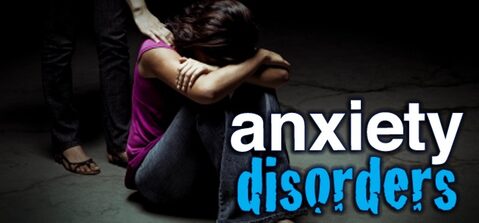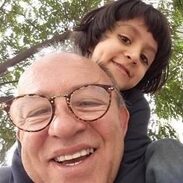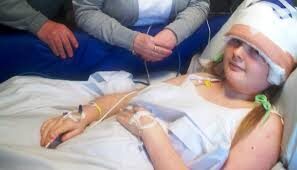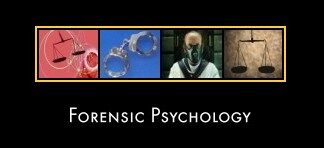 I decided to apply for the clinical PhD program at XXXX because of the thoroughgoing nature of your curriculum and your dedication to research, helping students to decide on the best avenue of research for their interests and intellectual strengths. I hope to become a professional researcher as well as counselor, and I look forward to being prepared at the XXXX because it appears to be the optimal platform for me to begin a career in psychology here on the West Coast, in California, a lovely place which I am increasingly thinking of as home. Your program is very strong in the area of research into anxiety disorder and I am especially looking forward to studying under Dr. XXXX who is distinguished in this area. Nevertheless, while I do hope to focus on anxiety and depression, I want to study these maladies from every angle, both historically and theoretically. I am confident that your Ph.D. Program will give me an opportunity to explore the bigger picture in a cutting-edge program that will help me to think creatively and prepare me to realize my maximum potential.
I decided to apply for the clinical PhD program at XXXX because of the thoroughgoing nature of your curriculum and your dedication to research, helping students to decide on the best avenue of research for their interests and intellectual strengths. I hope to become a professional researcher as well as counselor, and I look forward to being prepared at the XXXX because it appears to be the optimal platform for me to begin a career in psychology here on the West Coast, in California, a lovely place which I am increasingly thinking of as home. Your program is very strong in the area of research into anxiety disorder and I am especially looking forward to studying under Dr. XXXX who is distinguished in this area. Nevertheless, while I do hope to focus on anxiety and depression, I want to study these maladies from every angle, both historically and theoretically. I am confident that your Ph.D. Program will give me an opportunity to explore the bigger picture in a cutting-edge program that will help me to think creatively and prepare me to realize my maximum potential.
Graduate Study at the XXXX will provide me with vast opportunity to explore not only the professional exercise and practice of psychology in the United States, but I am also very much attracted to the diversity of your student body and I look forward to learning from my fellow students from all over the world, exploring the psychological dynamics of international, multicultural and multiethnic issues. In short, I see the XXXX as my best option for training to be of service to multiethnic Asian communities here in California.
I decided to come to America to prepare myself for a career in psychology because I feel that your emphasis on research and publication is much stronger here than it is at home in Korea. I also wanted to continue to advance professional within a multicultural society, like California, since multicultural issues are where I hope to make my mark in the future as a PHD graduate from your especially distinguished program.
Naturally, I think my greatest strength and my principal focus will be on the mental health issues of Koreans, both at home and those who have immigrated at some point to the USA, especially the ‘Korea Towns’ of California. In particular, I want to pay a lot of attention in the future to the way in which Korean people tend to simply ignore, or try to ignore, the reality of mental health issues and needs, because of a stigma that surrounds mental illness in Korean culture.
I also hope to distinguish myself in the exploration of the myriad psychological ramifications of the way in which Korea achieved such rapid economic growth, the psychological aspects of Korean industrialization, transforming South Korea from a highly cooperative to a highly competitive society, with special attention to the fact that we have the highest suicide rate among 30 OECD countries, with our number of suicide deaths doubling over the course of the last decade. This is why I hope to focus my studies towards the PHD at the XXXX in the area of causes and treatments of anxiety and stress related disorders.
Most specifically, I look forward to researching the way in which anxiety and stress are related to other disorders, particularly depression, panic disorder, agoraphobia, and eating disorder in the context of multicultural communities. I am attracted to the study of these areas, in particular, because of the prevalence of these conditions among Asians. Stress disorders are especially common in Korea which is a very hectic and competitive society with respect to business as well as education. Also, although some progress has been made, many people still are reluctant to see a psychiatrist or psychologist because of the traditional stigma attached to mental illness in our very conservative society. Finally, I learned a great deal about diversity issues from my experience as a multicultural counselor. I want to continue to learn everything that I can about ways in which we might foster more effective communication among members of multicultural communities.
My most specific interests at the XXXX include the biofeedback studies and training programs offered by Dr. XXXX. I keenly look forward to an in-depth engagement with Dr. XXXX's work with a focus on its relevance for anxiety disorders. Studying under Dr. XXXX, in particular, would be an excellent way for me to enhance my research abilities and learn to be an especially creative thinker in the area of anxiety disorders. My long term goal is make important contributions to the advancement of our study of clinical psychology in the context of international culture and community. The rapid growth of the Asian population in the USA, especially California, combined with the tendency among Asian peoples to neglect or ignore their mental health needs makes me confident that I will be able to make important contributions to our mental health services here in California. I look forward to using my language skills professionally here in America, working and helping people to heal in Korean and Japanese as well as English.
I thank you for considering my application to your distinguished program.


 As a 34-year old woman from Iran, I believe that my life experience and pronounced ability to overcome hardships make an excellent candidate for the doctoral program in Clinical Psychology at XXXX. I am extremely determined to contribute to constructive change in people’s lives. I am very highly motivated to succeed in your program because this will enable me to fulfill my calling, my duty to help abused women, like myself, that have been victimized by brutal forms of Islamic patriarchy. XXXX’s emphasis on producing and applying scientific knowledge to the assessment, understanding, and amelioration of human problems and its commitment to excellence in scientific training, using clinical science as the foundation for designing, implementing, and evaluating assessment and intervention procedures, will give me the tools that I need to establish an effective practice as a licensed clinical psychologist.
As a 34-year old woman from Iran, I believe that my life experience and pronounced ability to overcome hardships make an excellent candidate for the doctoral program in Clinical Psychology at XXXX. I am extremely determined to contribute to constructive change in people’s lives. I am very highly motivated to succeed in your program because this will enable me to fulfill my calling, my duty to help abused women, like myself, that have been victimized by brutal forms of Islamic patriarchy. XXXX’s emphasis on producing and applying scientific knowledge to the assessment, understanding, and amelioration of human problems and its commitment to excellence in scientific training, using clinical science as the foundation for designing, implementing, and evaluating assessment and intervention procedures, will give me the tools that I need to establish an effective practice as a licensed clinical psychologist. The greatest contribution that I might be able to make to society would be to improve the quality of life of children who have suffered brain damage. To this end I want to devote my professional life to research in the area of pediatric neuropsychology. I knew immediately that neurophysiology was the right career path for me when I saw how it could be combined with pediatrics. And I have been fortunate to work with one of the most distinguished professors and authorities in the field, Dr. XXXX, from whom I have learned a great deal. As a pediatric neuropsychologist, I hope to make scientific advances in the field that will help to increase the quality of life of brain damaged children and their families, helping them to better understand and cope with neuropsychological disorders.
The greatest contribution that I might be able to make to society would be to improve the quality of life of children who have suffered brain damage. To this end I want to devote my professional life to research in the area of pediatric neuropsychology. I knew immediately that neurophysiology was the right career path for me when I saw how it could be combined with pediatrics. And I have been fortunate to work with one of the most distinguished professors and authorities in the field, Dr. XXXX, from whom I have learned a great deal. As a pediatric neuropsychologist, I hope to make scientific advances in the field that will help to increase the quality of life of brain damaged children and their families, helping them to better understand and cope with neuropsychological disorders. 
 XXXX’s Ph.D. Psychology program is more than a logical progression for my academic and professional career, it is a truly natural choice, stemming from a lifelong desire to put action behind my passion for the inner workings of the human mind. Moreover, I feel I have exhausted every path of challenge and opportunity at my current academic level. While I have given all that I am to my work, my energy, creativity, I have been left wanting to give more and on a greater scale.
XXXX’s Ph.D. Psychology program is more than a logical progression for my academic and professional career, it is a truly natural choice, stemming from a lifelong desire to put action behind my passion for the inner workings of the human mind. Moreover, I feel I have exhausted every path of challenge and opportunity at my current academic level. While I have given all that I am to my work, my energy, creativity, I have been left wanting to give more and on a greater scale.